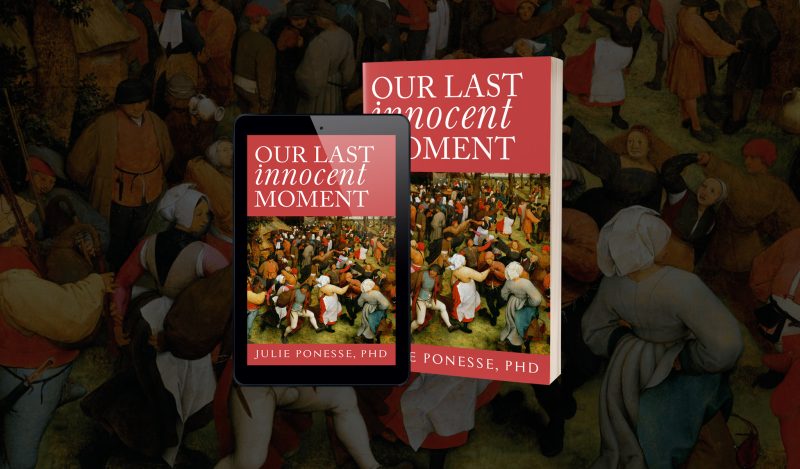So much about the policy response to Covid-19 has been seen as unprecedented and extreme. Despite all the infections and deaths, even greater numbers were predicted at the start, confronting the world’s governments with the prospect of exponential rises continuing until herd immunity was reached, all based on worst case scenarios of modelling which has been shown to be fallible and totally unreliable as a basis for government policy.
This frightened governments into undertaking unprecedented ‘nonpharmaceutical interventions’. They essentially accepted the Imperial College London’s Covid-19 Response Team’s finding that suppression of the pandemic would be ‘likely necessary’ for countries able to take the required measures, which were to limit contacts outside the household or workplace to 25% of normal levels (Table 2 of Report 9) for two-thirds of the time ‘until a vaccine became available,’ which might take 18 months or more.
As a consequence of these measures, there were unprecedented infractions of human rights across the world. States of emergency were introduced and in particular the right to travel between and within countries was curtailed, and ‘lockdowns’ or ‘stay at home’ orders were imposed.
How could this happen within the frameworks of human rights protections that we have grown used to?
The most important of these is the International Covenant on Civil and Political Rights (International Covenant). This has been adopted and ratified by most countries, and sets the framework for the work of the United Nations High Commissioner for Human Rights, whose website maintains a useful list of issues they are working on, such as housing, justice, discrimination etc. It is remarkable that in the midst of the greatest assault on individual rights in our lifetimes, the word ‘Covid’ appears nowhere in this list (at the time of writing). Same problem with the webpage of the UN Human Rights Committee, which maintains a list of ‘recent developments:’ the widespread crushing of human rights in most countries resulting from the pandemic response is not mentioned. The European organisation Human Rights Without Frontiers has four papers on its website, only under the categories of religious freedom and LGBTQI rights.
The source of the problem is Article 4 of the International Covenant, which allows most of the rights to be suspended ‘in time of public emergency which threatens the life of the nation and the existence of which is officially proclaimed,’ and other articles which specifically allow loopholes on the grounds of the imperative to protect public health.
So, all a repressive government has to do is declare a state of emergency and the following rights can be taken away from the people:
- liberty and security of person
- freedom of movement
- the presumption of innocence
- freedom from arbitrary or unlawful interference with privacy, family, home or correspondence, and unlawful attacks on honour and reputation
- freedom of expression
- the right to vote.
Freedom from coercive medical treatment and the right to choose your own health strategies is not in the Covenant; however, the ‘Universal Declaration on Bioethics and Human Rights’ does include in Article 5:
The autonomy of persons to make decisions, while taking responsibility for those decisions and respecting the autonomy of others, is to be respected.
In the Australian State of Victoria, one of the most repressive jurisdictions outside the People’s Republic of China, local legislation (including the Charter of Human Rights) has not prevented the government from putting the entire population in home detention for months on end, allowing them out only for 5 reasons specified by the government. At the time of writing, Victoria was in the sixth of its lockdowns, which have extended over 200 days. No public protests against these repressive measures are allowed in Victoria or New South Wales, and attempts to protest are vigorously broken up by police. The State Parliament has not been allowed to sit for long periods of time – democracy has been suspended. In these circumstances the head of government becomes essentially an elected dictator, accountable to no one.
Thousands of Australian citizens are stranded overseas, not allowed to return home in their time of need, and the Australian government has even prevented its own citizens who normally live overseas from leaving the country, for reasons that are not clear.
But isn’t this necessary to protect people from the pandemic?
The evidence is not sufficient to support this widely-held belief. Modelling is not evidence, and can only generate hypotheses. In particular, there is no hard evidence that lockdowns reduce mortality over the course of a year or over the course of an epidemic curve. Correlation is not causation, and anyway researchers have failed to even find such correlation in observational studies of the outcomes data in the large urbanised countries that were centres of the pandemic. And Bendavid et al found that implementing any government interventions slowed infection rates, but more restrictive interventions were no more effective in this than milder ones.
If there are any effects, they are not large enough to visibly influence the trajectory of epidemic curves in graphs which commonly continue unchanged for weeks or months after lockdowns are imposed or lifted, or coincide with a peak that would have occurred anyway. The impact of geography and seasonality dominate over government interventions in determining the outcomes in different countries.
The results of observational studies are heavily influenced by the selection of countries, with these correlations difficult to find across whole regions or between them, making them an uncertain basis for policy. Countries that did well in the first wave have experienced a stronger second wave. Fiji as an island nation held Covid at bay for over eighteen months and then experienced a major (per capita) wave. The strategy of locking down and holding out for relief from vaccination has not worked well for Israel, which experienced a third wave despite having a high proportion of the population vaccinated. This is most probably not what the government expected, although information about expected outcomes is hard to find on the Ministry of Health website (is there any?). Extreme interim measures may ultimately be futile – the cavalry is not going to sweep in and save the day.
Research on 314 Latin American cities explodes the core assumption on which limiting circulation is built. The research found that there was an effect on infection rates – but the effect evaporates after six weeks. It is only temporary. No findings were made on the effect of this temporary reduction in infection rates on outcomes (such as mortality).
This is why the World Health Organisation has never recommended prolonged lockdowns. This is most clearly stated in its original 2020 ‘COVID-19 Strategic Preparedness and Response Plan’ (SPRP):
Evidence has shown that restricting the movement of people and goods during public health emergencies may be ineffective, and may interrupt vital aid and technical support, disrupt businesses, and have a negative impact on the economies of affected countries and their trading partners. However, in certain specific circumstances, such as uncertainty about the severity of a disease and its transmissibility, measures that restrict the movement of people may prove temporarily useful at the beginning of an outbreak to allow time to implement preparedness activities, and to limit the international spread of potentially highly infectious cases. In such situations, countries should perform risk and cost-benefit analyses before implementing such restrictions, to assess whether the benefits outweigh the drawbacks.
Lockdowns are not mentioned at all in the 2021 version. Governments all over the world have disregarded the WHO’s guidance and imposed them for long periods, without producing evidence-based analysis to support such drastic actions.
Governments have claimed to be ‘saving lives’ and ‘following the science,’ but have not made out the case for the effectiveness of extreme interventions using evidence-based analysis. They have not demonstrated that lives have in fact been saved, or that all of the relevant science has been considered, including findings that contradict the recommended strategies, or findings that show the accumulating collateral damage from these policies.
In their desperation, governments have overshot the mark and crushed human rights unnecessarily. There has been much focus in recent years on interference from foreign governments. This has been nothing compared to the coercive and intrusive interference in daily activities from our own governments. Preventing ‘domestic interference’ should be a focus going forward.
But most human rights non-government organisations have done almost nothing to stop excessive government interference in the name of pandemic response. It does not feature in the list of issues on the website of the American Civil Liberties Union. A search of the website of Human Rights First (US) for ‘Coronavirus’ or ‘Covid’ yielded no results. Liberty Victoria has tamely accepted the need to shut down large-scale public gatherings, despite the complete absence of evidence that protest marches contribute to the spread of the virus. In general, our human rights organizations have failed us in our time of greatest need. They have done little or nothing to hold their governments accountable and ensure they act in accordance with the legal principles of proportionality and necessity.
Liberty (UK) is an honourable and exemplary exception and has been very active since March 2020 in campaigning against the most repressive parts of its government’s Coronavirus Act.
The courts have also failed us. The Australian High Court ruled that State governments could close their borders even though the Constitution mandates free trade and intercourse across state lines ‘absolutely.’ In normal times and in normal parlance, ‘absolutely’ means ‘without exception,’ but through tortured legal reasoning (including the doctrine of ‘structured proportionality’), the court ruled that the phrase ‘should not be taken literally’ and overruled the plain meaning on the grounds that border closures were necessary to prevent the virus from being ‘imported’ into a jurisdiction that was clear of SARS-CoV-2 for the time being.
Left-liberals have been silent, and only some libertarians have raised critical voices. Where is the George Orwell of our times (Orwell was both a committed democratic socialist and one of the most effective opponents of autocracy of his time)? Both wings should join together in a common cause to hold governments accountable.
So, what can be done to place more constraints on governments to prevent them from unnecessarily crushing human rights?
The International Covenant and local legislation should be amended to place strict time limits on any suspension of human rights. The loopholes in the International Covenant allowing rights to be suspended should be drastically cut down, if not removed altogether. There is no need to suppress freedom of speech if a hurricane comes along, allow unlawful attacks on honour or reputation or take away the presumption of innocence. These should not happen under any circumstances.
Governments should be required to make out the case for suspending rights, and the bar for justifying this should be set at a high level. A few off-the-cuff remarks at a press conference is not enough to enable accountability. In fact there is a striking absence of strategy in government documents about the pandemic response generally, and virtually no consideration of alternative strategies (such as vaccinating the higher risk top quartiles of the population and relying on the lower risk bottom quartiles to develop natural immunity as advocated by Giubilini et al) that were considered, or any explanation of why they were rejected.
In the future, at least some controls should be included in the legislation governing states of emergency, so that whenever a decision is made to restrict individual liberty to protect public health, there are strict time limits. Governments must set out, at least in the form of briefs:
- The advice from the Chief Health Officer or agency head that they relied on
- Any relevant recommendations or guidance from the World Health Organisation, and justification in the event these are not going to be followed
- A cost-benefit analysis that considers not only the economic costs, but also the likely collateral costs to public health and adverse effects
- The evidence on which the cost-benefit analysis has been made
- The government’s reasons for imposing the measures.
And the executive’s decision to impose such measures must be ratified within weeks following a full debate in the legislature on the basis of this documentation. All this needs to be baked into the legislative framework.
These are minimal requirements to ensure some level of transparency. Governments will argue that there is often no time to prepare these documents in an emergency, but public servants are commonly required to prepare briefs on complex policy matters by noon the following day.
Where governments are contemplating emergency policy options, they must deploy only well calculated measures after due consideration of the impact on human rights, and of both the benefits and any short or longer term adverse effects. They should not gamble with the lives and livelihoods of their people by taking extreme measures in the hope that they might work.
Published under a Creative Commons Attribution 4.0 International License
For reprints, please set the canonical link back to the original Brownstone Institute Article and Author.









